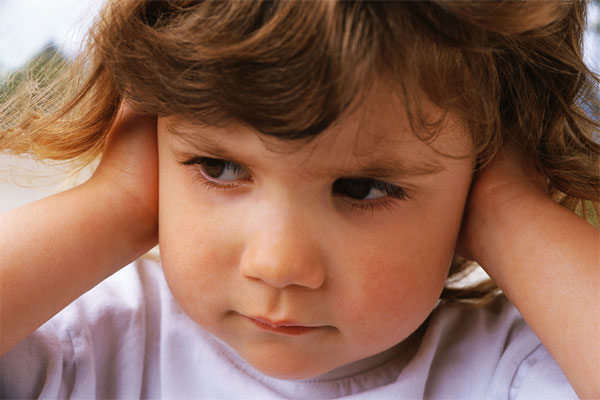Asperger syndrome is one of the autism spectrum disorders. Learn more about this condition and its characteristics. Asperger syndrome or Aspergers syndrome is named after the Austrian paediatrician, Dr. Hans Asperger. In the 1940s, he came across children who had normal intelligence and well developed language skills. However, they lacked the social skills that were observed in other children of the same age group. They were unable to communicate with their peers. Hans Asperger diagnosed these children as suffering from a disorder which was different from autism. For fifty years, this disorder was simply considered to be a milder form of autism. Finally, in 1994, Asperger syndrome was included in the American Psychiatric Associations Diagnostic and Statistical Manual of Mental Disorders (DSM-IV) and the International Statistical Classification of Diseases and Related Health Problems (ICD-10) In this articleWhat is Asperger syndrome?What are the characteristic features of Asperger syndrome?Social SkillsInterestsLanguageWhat is Asperger syndrome? Asperger syndrome is one of the disorders that are jointly classified as autism spectrum disorders. These are a group of disorders, which prevent an individual from developing normal social skills. This impairs his ability to interact with people and objects around him. In addition, an individual will also display certain repetitive behaviour and will have very few interests. Asperger syndrome is termed as a neurobiological disorder. As with other disorders in this group, it may begin in infancy or early childhood and continue to develop, as the child grows older. An individual suffering from Asperger syndrome has normal intelligence and is able to speak clearly. However, the individual is unable to function normally in a social setting. He cannot understand nonverbal cues such as body language. He is unable to connect with his peers and appears to be physically clumsy. What are the characteristic features of Asperger syndrome? An individual with Asperger syndrome does not display only one particular behaviour. He will display a whole pattern or set of behaviours which are associated with this disorder. Social Skills A child with Asperger syndrome wants to interact with his peers but simply does not know how. Although he can speak to people, he will experience great difficulty in basic social behaviour such as making friends or joining in celebrations. He also has trouble with nonverbal behaviours such as making eye contact, correct posture, facial expressions, and gestures. Since a child with Asperger syndrome is able to speak normally, he will not have any difficulty in approaching other people and speaking to them. However, he will fail to pick up cues indicating that the listener is disinterested. Behaviour such as boredom signs or a person wanting to leave go unnoticed by him. If a child has not yet been diagnosed with Asperger syndrome, such behaviour makes him appear rude and insensitive. Interests A child with Asperger syndrome typically has only a few interests but he will be intensely be focused on them. His behaviour is also repetitive. He will have a routine for most daily tasks, which he simply must stick to. He will move about in a repetitive manner, which conforms to a stereotype such as moving back and forth or from side to side. In addition, he may also develop a preoccupation with a particular part of an object rather than the entire object itself. The single-minded pursuit of a specific area of interest is a famous characteristic of Asperger syndrome. A child afflicted with Asperger syndrome will suddenly become obsessed with a single topic such as volcanic eruptions or computer hard drives. He will collect all the information he finds on that particular topic. However, he does not truly understand the subject. For example, a child will know all the model numbers of the hard drives available but will not actually be interested in computers as a whole. Language A child with Asperger syndrome is able to speak but his speech is usually loud, and fast, and accompanied by jerking movements. His speech will sound like a group of words put together, rather than a proper conversation, which also has nuances and emotions. He will often engage in long monologues about sophisticated or complicated topics that are of no interest to the listener and have no conclusion. He also does not understand speech that is interspersed with humour, irony, metaphors, etc. For him, every sentence is understood in the literal sense. Although Asperger syndrome cannot be cured, a childs condition can still be improved. He can be taught how to interact with his peers and can undergo therapy to help him improve his behaviour in a social setting.
Asperger syndrome is one of the autism spectrum disorders. Learn more about this condition and its characteristics. Asperger syndrome or Asperger's syndrome is named after the Austrian paediatrician, Dr. Hans Asperger. In the 1940s, he came across children who had normal intelligence and well developed language skills. However, they lacked the social skills that were observed in other children of the same age group. They were unable to communicate with their peers. Hans Asperger diagnosed these children as suffering from a disorder which was different from
autism.
For fifty years, this disorder was simply considered to be a milder form of autism. Finally, in 1994, Asperger syndrome was included in the American Psychiatric Association's Diagnostic and Statistical Manual of Mental Disorders (DSM-IV) and the International Statistical Classification of Diseases and Related Health Problems (ICD-10)
What is Asperger syndrome?
Asperger syndrome is one of the
disorders that are jointly classified as 'autism spectrum disorders'. These are a group of disorders, which prevent an individual from developing normal social skills. This impairs his ability to interact with people and objects around him. In addition, an individual will also display certain repetitive behaviour and will have very few interests.
Asperger syndrome is termed as a neurobiological disorder. As with other disorders in this group, it may begin in infancy or early childhood and continue to develop, as the child grows older. An individual suffering from Asperger syndrome has normal
intelligence and is able to speak clearly. However, the individual is unable to function normally in a social setting. He cannot understand nonverbal cues such as body language. He is unable to 'connect' with his peers and appears to be physically clumsy.
What are the characteristic features of Asperger syndrome?
An individual with Asperger syndrome does not display only one particular behaviour. He will display a whole pattern or set of behaviours which are associated with this disorder.
Social Skills
A child with Asperger syndrome wants to interact with his peers but simply does not know how. Although he can speak to people, he will experience great difficulty in basic social behaviour such as making friends or joining in celebrations. He also has trouble with nonverbal behaviours such as making eye contact, correct posture, facial expressions, and gestures.
Since a child with Asperger syndrome is able to speak normally, he will not have any difficulty in approaching other people and speaking to them. However, he will fail to pick up cues indicating that the listener is disinterested. Behaviour such as boredom signs or a person wanting to leave go unnoticed by him. If a child has not yet been diagnosed with Asperger syndrome, such behaviour makes him appear
rude and insensitive.
Interests
A child with Asperger syndrome typically has only a few interests but he will be intensely be focused on them. His behaviour is also repetitive. He will have a routine for most daily tasks, which he simply must stick to. He will move about in a repetitive manner, which conforms to a stereotype such as moving back and forth or from side to side. In addition, he may also develop a preoccupation with a particular part of an object rather than the entire object itself.
The single-minded pursuit of a specific area of interest is a famous characteristic of Asperger syndrome. A child afflicted with Asperger syndrome will suddenly become obsessed with a single topic such as volcanic eruptions or
computer hard drives. He will collect all the information he finds on that particular topic. However, he does not truly understand the subject. For example, a child will know all the model numbers of the hard drives available but will not actually be interested in computers as a whole.
Language
A child with Asperger syndrome is able to speak but his speech is usually loud, and fast, and accompanied by jerking movements. His speech will sound like a group of words put together, rather than a proper conversation, which also has nuances and emotions. He will often engage in long monologues about sophisticated or complicated topics that are of no interest to the listener and have no conclusion. He also does not understand speech that is interspersed with humour, irony, metaphors, etc. For him, every sentence is understood in the literal sense.
Although Asperger syndrome cannot be cured, a child's condition can still be improved. He can be taught how to interact with his peers and can undergo therapy to help him improve his behaviour in a social setting.

































